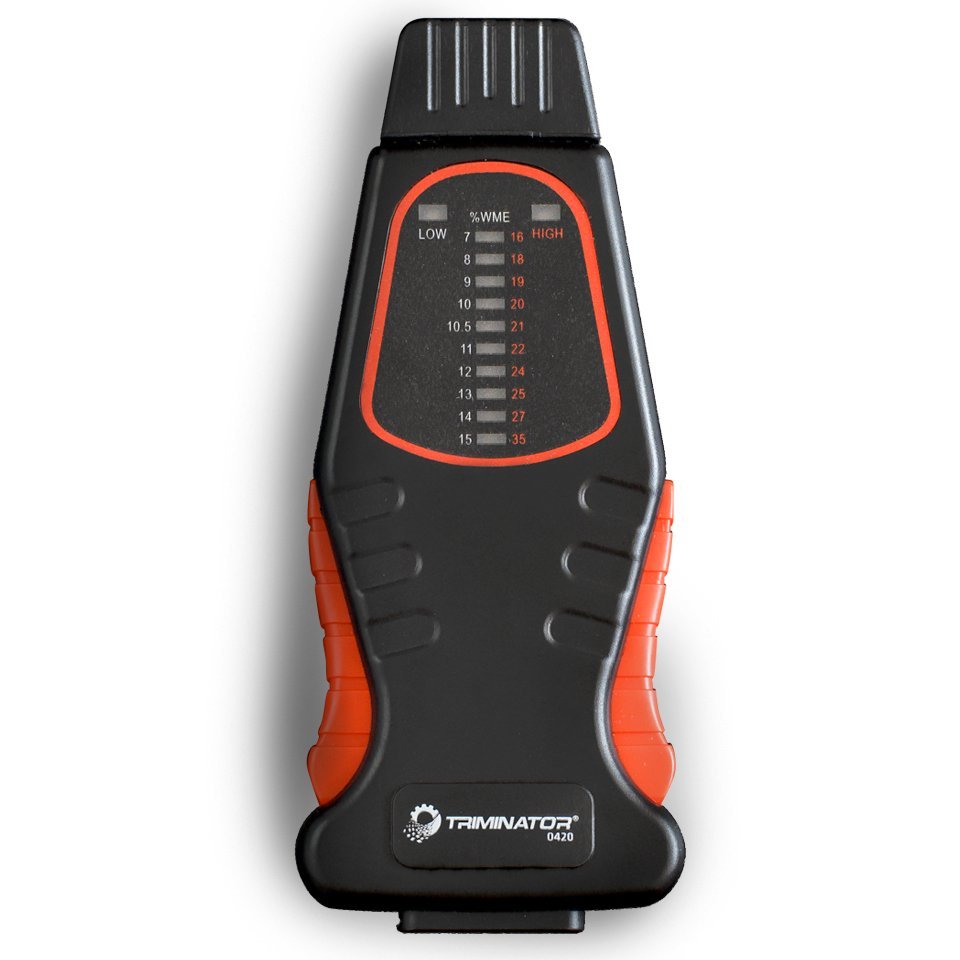Comprehending the Different Types of Moisture Meters and Their Applications
Comprehending the Different Types of Moisture Meters and Their Applications
Blog Article
The Ultimate Overview to Moisture Meters: A Comprehensive Review and Just How They Can Save You Money
Moisture meters serve as indispensable tools in finding and checking moisture material in materials, helping in protecting against costly damages and making sure the high quality of items. Recognizing the subtleties of different types of wetness meters, their applications, and the possible cost-saving benefits they provide can be a game-changer for organizations and professionals alike.
Kinds of Moisture Meters
One typical type is the pin-type wetness meter, which determines the electrical resistance between 2 pins put right into a material. Pinless wetness meters, on the various other hand, usage electromagnetic sensor plates to scan a bigger location without creating damages to the product's surface.

Infrared wetness meters measure the thermal homes of a product to determine its wetness web content non-invasively, making them useful for applications where pin or pinless meters may not be ideal. Understanding the various kinds of moisture meters available can assist sectors select the most proper device for their specific moisture measurement demands.

Benefits of Using Wetness Meters
Wetness meters provide invaluable advantages in properly keeping track of and assessing dampness degrees in diverse products and settings. One of the main benefits of making use of dampness meters is the prevention of potential damages created by excess wetness.
Additionally, utilizing moisture meters can lead to enhanced power effectiveness. In farming settings, wetness meters play a crucial function in maximizing crop yields by enabling farmers to keep an eye on dirt dampness levels and make notified watering decisions.
Just How to Select the Right Dampness Meter
When choosing a moisture meter, it's essential to make certain that the meter is appropriate for the particular material you will be screening. Different materials have differing electrical residential or commercial properties that can affect dampness readings, so selecting a meter created for your product is essential for accurate results. By meticulously examining these elements, you can choose a wetness meter that meets your demands and offers accurate wetness measurements for your jobs.
Proper Strategies for Moisture Meter Use

Cost Savings Via Dampness Meter Applications
How can the critical application of dampness meters cause considerable cost savings throughout different markets? Moisture meters play an important role in price financial savings by stopping prospective damage and making certain quality assurance in various fields. In the agriculture industry, moisture meters help in figuring out the optimal time for harvesting crops, protecting against excess or over-drying wetness i thought about this that can impact the end product's quality. This exact monitoring helps farmers stay clear of unnecessary losses and optimize their yield.
Similarly, in building and construction, moisture meters assist prevent expensive problems by identifying moisture degrees in structure materials, such as timber or concrete, which can lead to architectural concerns if not resolved quickly. By recognizing problem areas beforehand, specialists can take rehabilitative measures to prevent extensive repair work or replacements, inevitably conserving time and money.
In addition, in the food processing industry, wetness meters are crucial for i loved this keeping an eye on item high quality and ensuring conformity with safety and security regulations. By properly determining moisture web content in food items, suppliers can stop perishing, keep quality, and lower waste, resulting in significant cost savings. On the whole, the strategic application of dampness meters is an important financial investment that can bring about significant price decreases and boosted effectiveness throughout numerous markets.
Final Thought
In final thought, moisture meters are beneficial devices for finding and determining moisture degrees in various products. By using the appropriate wetness meter and adhering to proper methods, users can properly avoid costly damages created by excess wetness.
Dampness meters serve as indispensable devices in spotting and monitoring moisture web content in materials, assisting in stopping costly problems and making sure resource the high quality of products. Infrared wetness meters measure the thermal homes of a product to identify its dampness material non-invasively, making them helpful for applications where pin or pinless meters may not be suitable.Dampness meters offer very useful benefits in properly evaluating and checking dampness degrees in varied products and environments. In agricultural settings, wetness meters play a critical role in enhancing plant returns by making it possible for farmers to keep track of soil wetness levels and make notified irrigation choices.In conclusion, moisture meters are useful devices for identifying and gauging moisture levels in different products.
Report this page